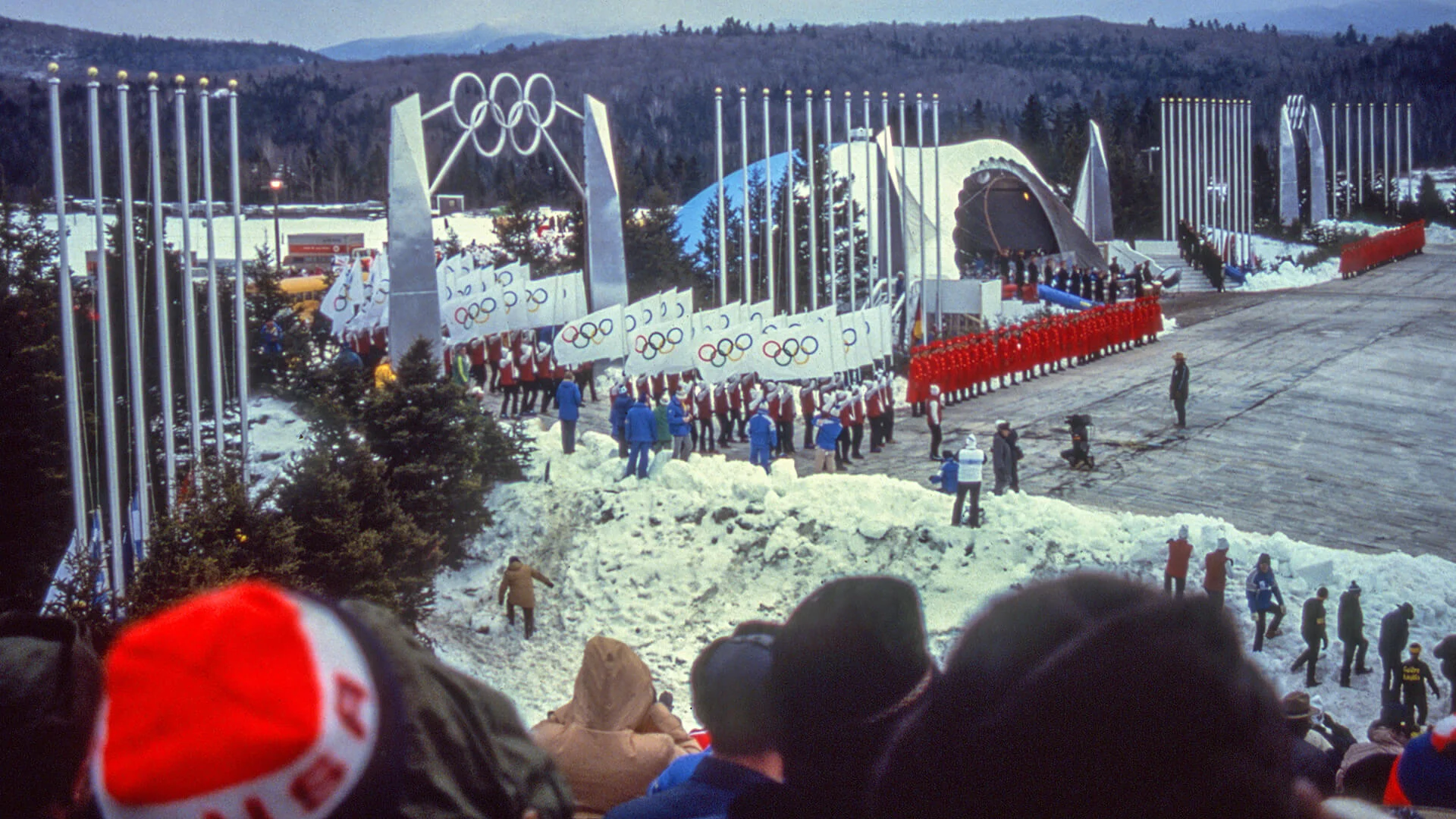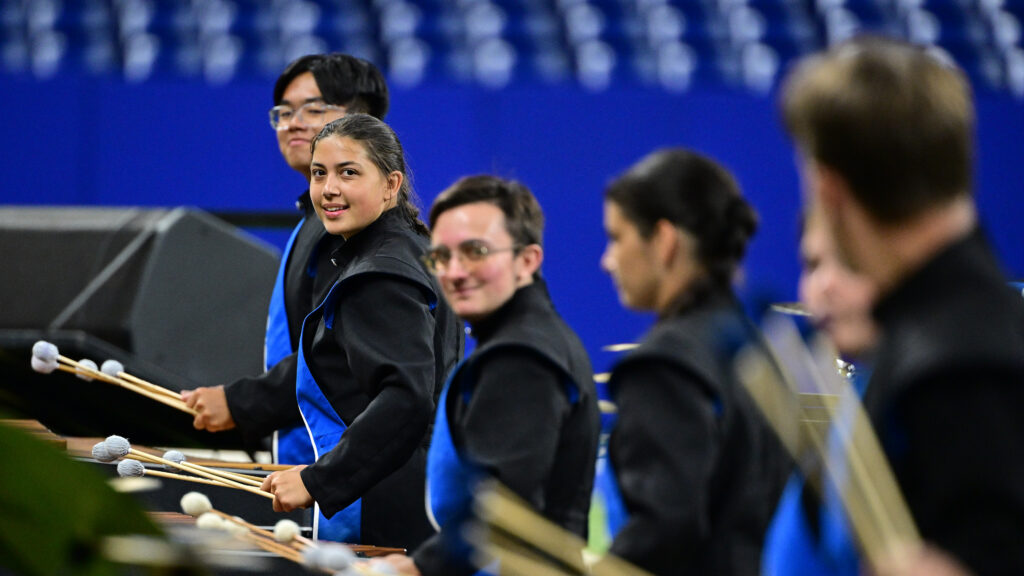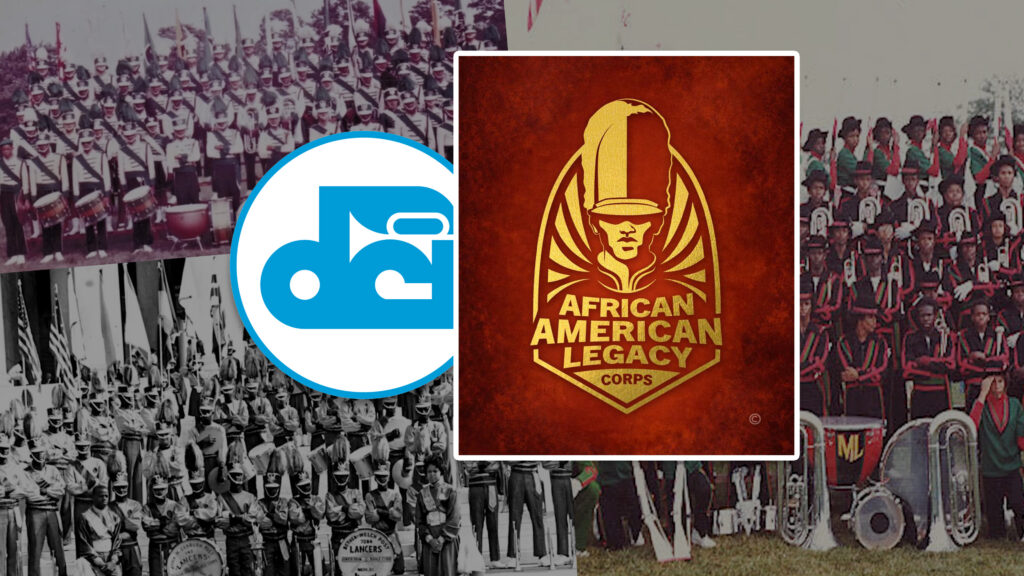Republished from Drum Corps International Magazine (Winter, 2010, Vol. 4 No. 2).
The United States was a nation in transition when the Winter Olympics began in Lake Placid, New York, on February 13, 1980: Fifty-three Americans were being held hostage in Iran; the nation’s economy was struggling, in part due to an oil crisis that sent prices skyrocketing; political winds of change were blowing, with California Gov. Ronald Reagan just months away from securing the Republican presidential nomination and a subsequent November general-election victory over incumbent President Jimmy Carter.
It was against this backdrop that the 1980 Winter Olympics gave America one of its greatest sporting thrills of all time: A ragtag group of U.S. hockey players, in a stunning upset, defeated the formidable Soviet Union en route to winning the gold medal. In the process, the upstart Americans—at least for a time—helped lift the national malaise.
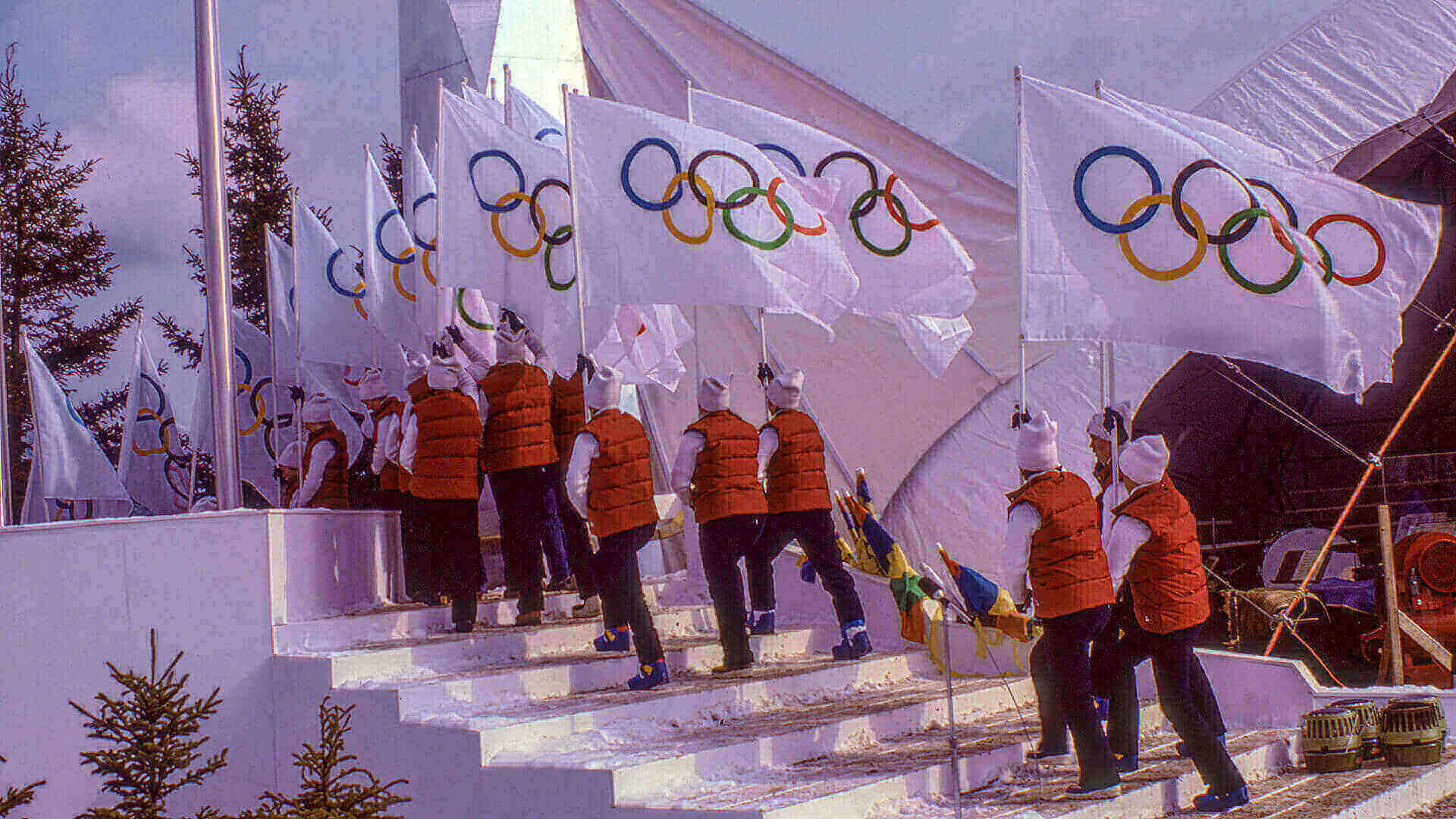
For Drum Corps International, the 1980 Winter Olympics marked a momentous opportunity for unprecedented exposure: Members of the Revere, Massachusetts-based 27th Lancers took part in the opening and closing ceremonies, bringing the majesty of drum corps to a worldwide audience that some have estimated to be as high as 180 million people. The 27th Lancers (which last marched in ’86) also gained the experience of a lifetime. Even during the 30th anniversary of those performances in 2010, the memories of those who took part remained vivid.
“We had antifreeze in our valve oil and plastic mouthpieces,” recalls John Philbrook, who marched with the 27th Lancers in 1980, a year that he remembers as the best he had in competitive junior drum corps. “We froze. We had a ball!”
The corps’ journey to Lake Placid began at the 1979 DCI World Championship Finals in Birmingham, Alabama. The ’79 event was broadcast on PBS, and a man named Tommy Walker—who was hired to coordinate the ceremonies at Lake Placid—was impressed as he watched from his home in Los Angeles.

“We caught his attention.” Barbara “Bunny” Hopkins, who marched in the 27th Lancers’ color guard from 1976 through ’80, told DCI.org in a 2006 interview, “And since Revere was within about a six-hour drive of Lake Placid, he went ahead and invited us.”
Walker extended an invitation to 27th Lancers founder and leader George Bonfiglio on behalf of the U. S. Olympic Committee, and a formal arrangement was made: The Olympic committee agreed to pay for all food and fuel costs, provide lodging at a school in nearby Tupper Lake, New York, and outfit the corps with uniforms of white ski hats, maroon down-filled vests, white woolen turtleneck sweaters, dark blue corduroy pants and black gloves.
Raising the flag
For Philbrook, the wonder of the 1980 Winter Olympics began almost immediately upon his arrival in Lake Placid. Exiting the bus to rehearse for the opening ceremonies, he received quite a surprise from DCI Hall of Fame visual designer Marc Sylvester.
“[Marc] was pointing at some of us as we stepped off,” Philbrook remembers. “‘You!’ was all we got as he thumbed toward where he wanted us to go. He later told us we’d all moaned like we were being given a chore but that we should really thank him instead—because we were going to carry out and raise the Olympic Flag!”
Ten members of the 27th Lancers, including Philbrook, were given plain white ski suits and carried the flag alongside an honor guard comprised of Boy Scouts of America. Philbrook was positioned on a leading corner, with Cliff White occupying the other.
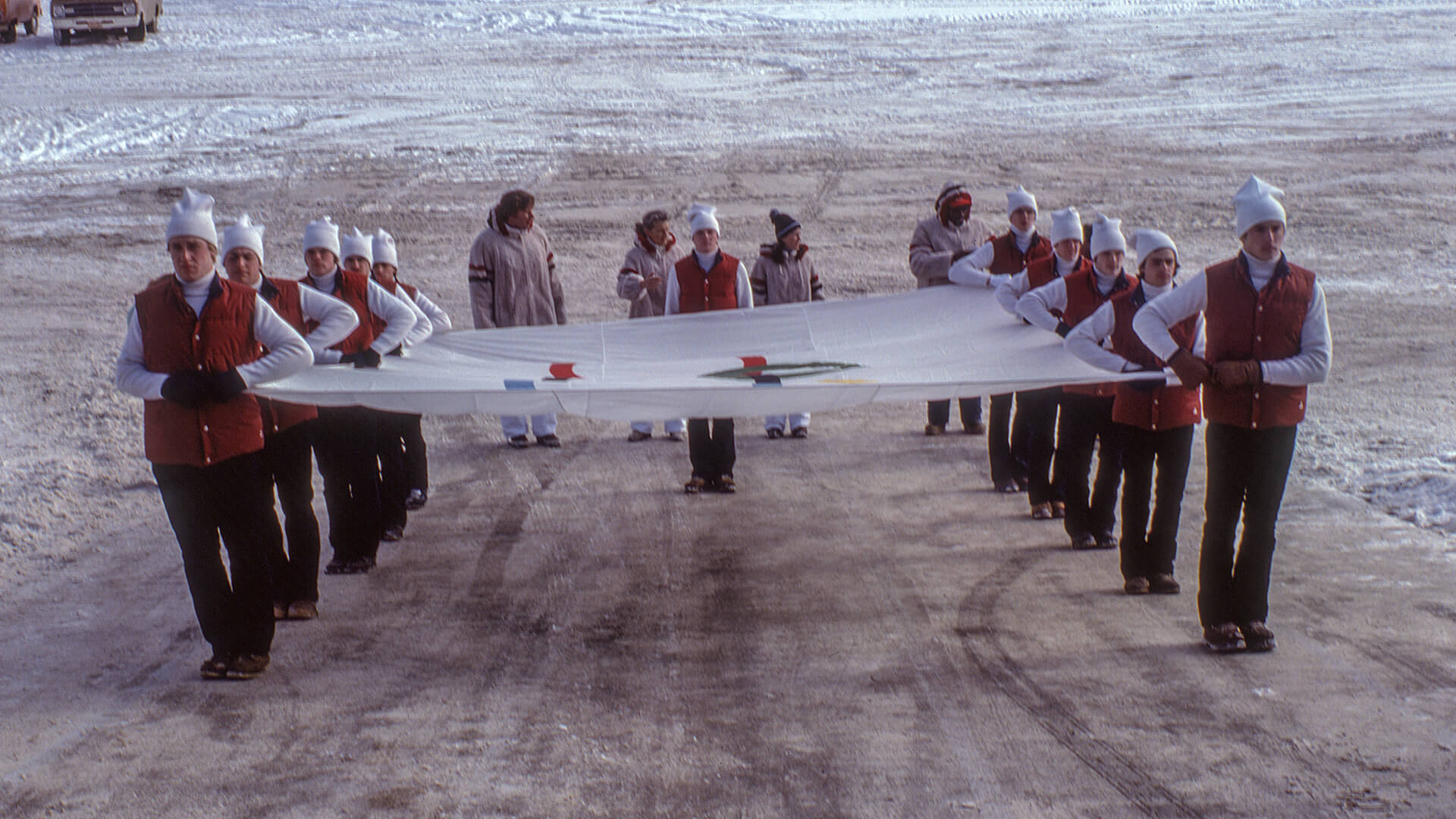
“This meant that upon reaching the flagpole we had key positions in raising that flag as the Olympic theme played out strong for all to hear. As Cliff managed the returning rope I had the real privilege of slowly and evenly pulling that rope hand over hand, raising the Olympic Flag! It still seems unreal to me that it could happen, but it did. Talk about being in the right place at the right time!”
“The flag was supposed to be carried in by a local Boy Scout troop, but they couldn’t handle the size of it so Tommy Walker asked us to do it,” recalls Paul O’Keefe, a member of the 27th Lancers from 1979 to 1981.
Revere native Marie Ferrante McBride said the young scouts couldn’t stay in step, nor could they keep the flag taut while walking. “George [Bonfiglio] saw this and yelled out, ‘Contra line, get over here!'” she remembers. “The next thing happening was that the television cameras were on and the 27th Lancer contra line was marching out the Olympic flag in front of the world—in perfect step with a perfect flag.”
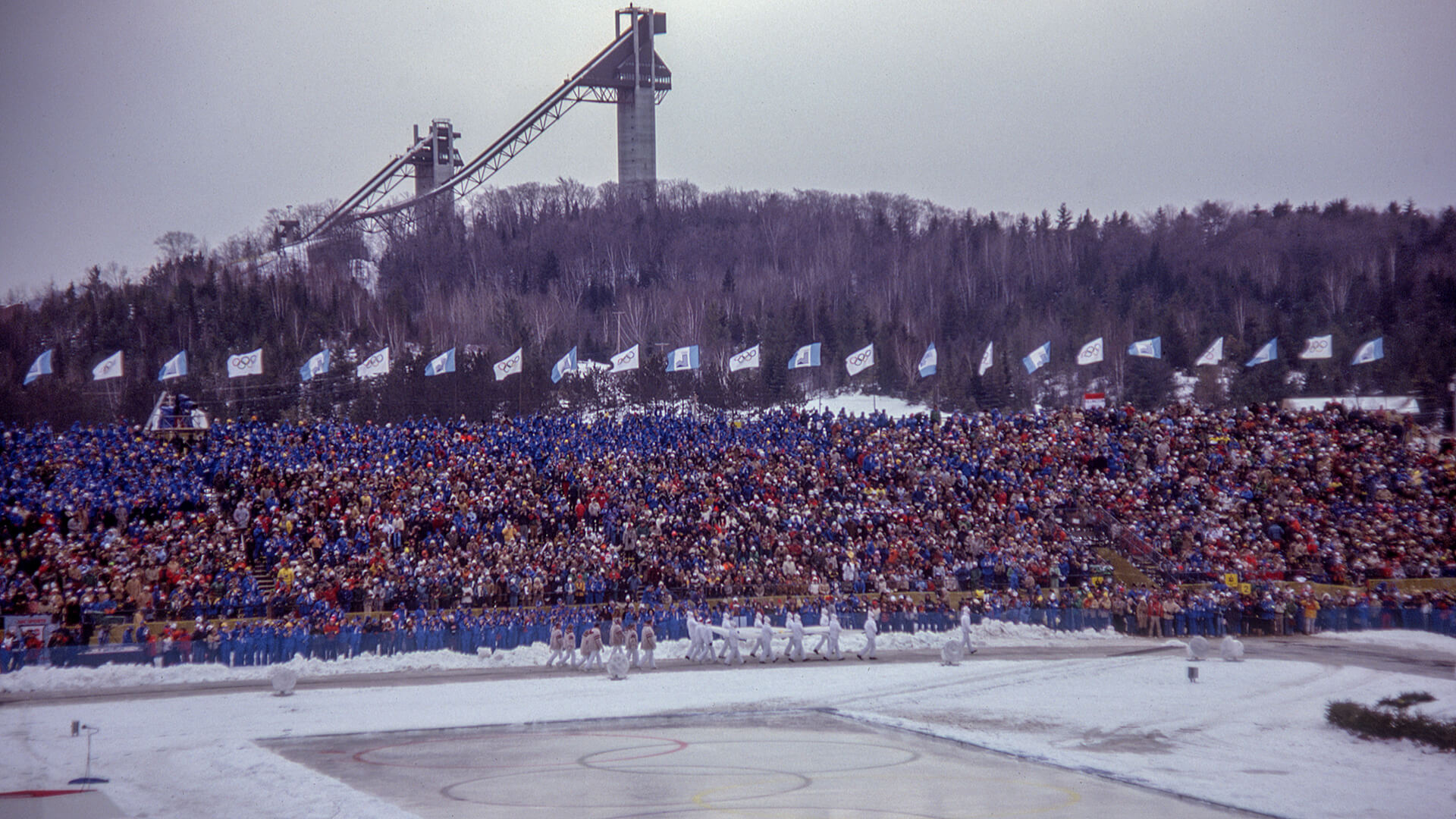
McBride, a member of the 27th Lancers’ color guard, was an established drum corps veteran by 1980. A neighbor of George and Patsy Bonfiglio (and a close friend and classmate of their daughter Janine), she’d marched with the 27th Lancer Cadets before joining the 27th Lancers near the end of the 1974 season. And by the time she aged-out in 1982, she’d made eight appearances at the DCI World Championships.
“I remember so many snippets from the month of February,” she says, recalling the excitement of walking around the Olympic Village and trading pins (which she still has stashed away in a safe-deposit box) with athletes from around the world.
The Lancers were rehearsing right next door—and hearing the roaring crowd—as the 1980 U.S. Olympic hockey team of “Miracle on Ice” fame stunned the world and won the gold medal in what remains one of the greatest sports upsets in American—and Olympic—history.
Fighting the elements
O’Keefe has a different memory: the brutal weather. A bitter cold had descended on Lake Placid that February, and it wreaked havoc for many members of the corps, with drum heads shattering like glass and horn players urgently searching for ways to keep their instruments playable.
“During our rehearsals for the opening ceremonies, the temperature in the morning averaged 20 degrees below zero and a balmy 10 degrees during the day, with the sun shining for short periods of time—which we greatly welcomed,” O’Keefe recalls. “We would dress as warmly as we could in our street clothes, extra socks and a few layers of long johns and gloves. But trying to hit the valves of our horns wearing heavy gloves was impossible, so most of us would keep our hands and mouthpieces in our pockets when we weren’t playing to keep them warm.”
It soon became apparent for the 27th Lancers’ horn players that there was another major problem to deal with beyond cold mouthpieces and the difficulty of hitting valves with gloves on: The spit they were producing was resulting in frozen valves.
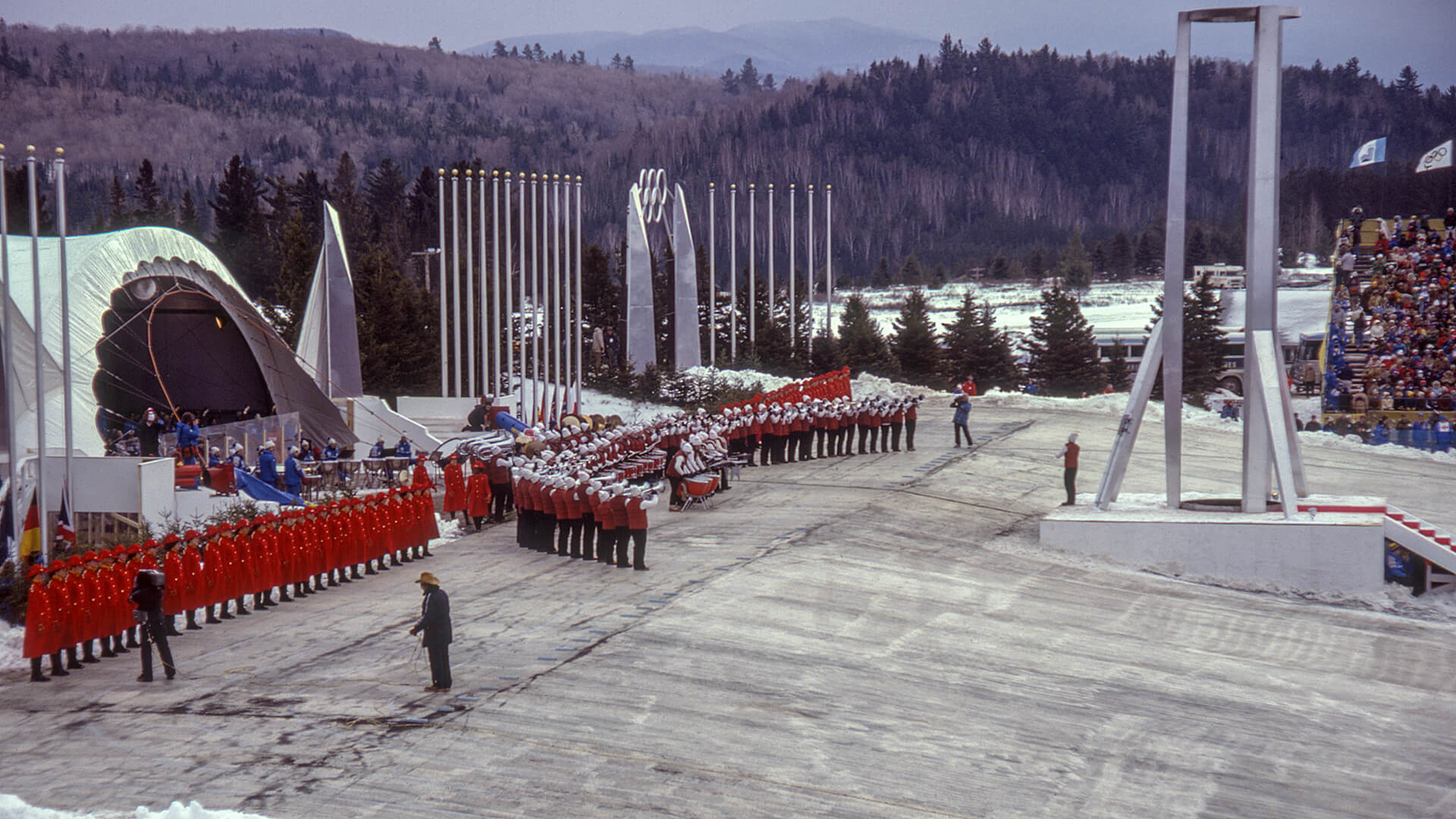
“The staff and management tried cold weather valve oil, which only lasted about 30 seconds,” O’Keefe remembers. “Then they tried graphite to powdered Teflon. Nothing worked until someone suggested car antifreeze. Just before the opening ceremonies, the horn line would stand in line, pull out the valve, and the staff and management would assist us and dip the valve into the antifreeze and place it back into the horn. It worked like a charm, just like the valves of a car engine.”
McBride says the weather wasn’t the only challenge. “It was very difficult performing with cameras and with others telling us where to be and what to do. It was quite an accomplishment the corps pulled off during the ‘off-season’ for drum corps.”
The commencement of the 1980 Winter Olympics, Hopkins recalled, was simply unforgettable. (The 27th Lancers actually arrived in Lake Placid about a week before the opening ceremonies; the corps then returned to Massachusetts, then back to New York for the closing ceremonies about two weeks later.)
“The opening ceremony was probably the most amazing moment of my entire life,” she said back in 2006, “and the festivities continued for us throughout the night back at our home base in Tupper Lake. As we partied in the local tavern and cheered when the television showed the clips from the local news, patrons asked for autographs and supplied us with food and beverage. It was a moment I’ll never forget!”
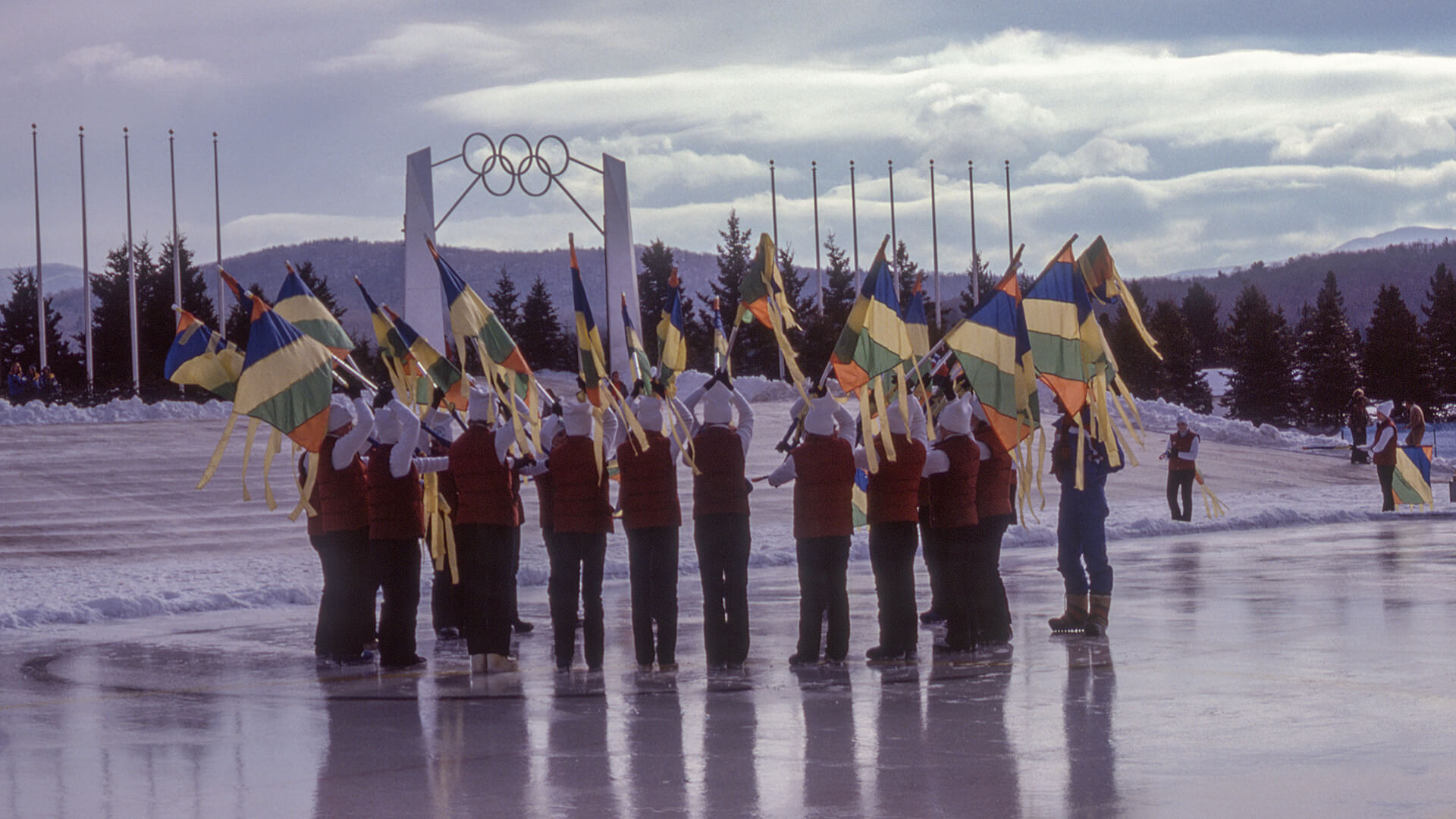
McBride, meanwhile, says the 1980 experience was one of those things that is hard to appreciate in the moment. “But when you reflect back on it, you realize what a special, once-in-a-lifetime event it really was,” she says. “It put drum and bugle corps into the homes of millions worldwide at a time when drums corps on television was just beginning. (The 27th Lancers had made an appearance on “The Mike Douglas Show” five years earlier.)
The 1980 Winter Olympics were special to many—athletes and corps members—for a variety of reasons. For athletes like speed skater Eric Heiden, who won five gold medals at Lake Placid (the U.S. won six altogether, the other belonging to the hockey team), the Games meant Olympic immortality. For O’Keefe and the members of the 27th Lancers, the Lake Placid experience—frozen valves and all—have provided a lifetime’s worth of enduring memories.
“I can only describe the whole experience as something very magical and a dream come true for a boy who had always dreamed of marching with the 27th Lancers after first seeing them in 1975 at the age of 15,” he says. “Finding out we were going to be a part of the Olympic experience was top of the world! Icing on the cake! Uncontainable joy and gratitude—not only to the Lancers organization but also to this wonderful activity we call drum corps, which has given each and every one of us something much greater than oneself. Priceless!—just like they say in the commercial.”
27th Lancers' Olympic Triumph
Photos: Ed Ferguson collection


